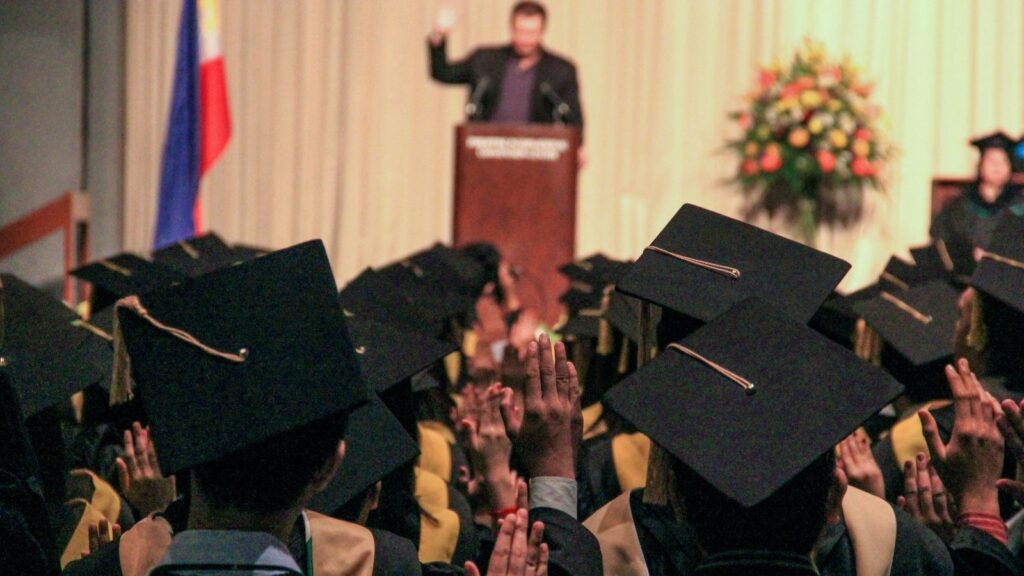As more companies adopt artificial intelligence and automate jobs, fears about AI’s impact on low-level tasks and entry-level roles have sparked a heated debate about the future of white-collar jobs—especially among those just entering the workforce.
Despite widespread fears that artificial intelligence could automate jobs and reduce employee wages, Nvidia CEO Jensen Huang believes that while jobs are undoubtedly evolving in the AI era, entry-level white-collar roles won’t be entirely wiped out. Huang leads Nvidia, now the world’s most valuable technology company.
“Some jobs will be obsolete, but many jobs are going to be created… Whenever companies are more productive, they hire more people,” Huang said at the VivaTech conference in Paris last week.
His comments were in response to recent claims by Anthropic CEO Dario Amodei, who warned that up to 50% of all entry-level white-collar jobs could be eliminated by AI, potentially pushing unemployment to 20% within the next five years.
“One, he believes that AI is so scary that only they [Anthropic] should do it. Two, that AI is so expensive, nobody else should do it… and three, AI is so incredibly powerful that everyone will lose their jobs, which explains why they should be the only company building it,” Huang said.

“I think AI is a very important technology; we should build it and advance it safely and responsibly. If you want things to be done safely and responsibly, you do it in the open… Don’t do it in a dark room and tell me it’s safe.”
While Huang believes that AI will open more career opportunities in the future, OpenAI’s Sam Altman have a different view on how artificial intelligence may impact the job market. According to Altman, whose company makes the most advanced LLM, expects there could be “whole classes of jobs going away” as AI develops.
Story continues below this ad
“The rate of technological progress will keep accelerating, and it will continue to be the case that people are capable of adapting to almost anything,” he said in a blog post last week.
“There will be very hard parts like whole classes of jobs going away, but on the other hand, the world will be getting so much richer so quickly that we’ll be able to seriously entertain new policy ideas we never could before. We probably won’t adopt a new social contract all at once, but when we look back in a few decades, the gradual changes will have amounted to something big.”
According to Altman, while the job landscape may change in the coming years, there will also be new opportunities created by superintelligence:
“…maybe we will go from solving high-energy physics one year to beginning space colonization the next; or from a major materials science breakthrough one year to true high-bandwidth brain-computer interfaces the next.”
Huang and Altman aren’t the only tech CEOs with strong views on AI and jobs—Zoho founder Sridhar Vembu also has clear thoughts on how AI could impact employment.
Story continues below this ad
According to Vembu, if artificial intelligence disrupts the job market, there are two possible outcomes: the prices of automated goods and services could drop significantly, or the remaining human-centered professions may see a substantial increase in pay.
“On the subject of AI and jobs: Hypothetically, if all software development were to be automated—I want to emphasize that we are nowhere close to that goal—and all software engineers like myself were out of work, it’s not as if human beings would have nothing to do.”
Vembu also pointed out the broader economic challenge: “How do people afford all the goods that pour out of automated factories that employ no workers?”
Meanwhile, LinkedIn co-founder Reid Hoffman believes that what young people learn in college isn’t the most important factor when it comes to getting a job. According to Hoffman, the ability to apply AI tools and leverage connections is far more essential to landing a job.
Story continues below this ad
‘’It isn’t specific degrees, specific courses, [or] even necessarily specific skills that are relevant to you,’’ he said in a recent video on his YouTube channel. “It’s your capacity to say, ‘Hey, here is the new tool set, here’s the new challenge.’ That is actually what the future work’s going to look like. One thing is to not focus on the degree, but to focus on how you learn and to be continually learning,” Hoffman said.
‘’The other part of college that’s super important, that you should not forget, is that life is a team sport, not just an individual sport,” he continued. “You can help each other.”
In recent months, more and more tech CEOs have weighed in on the rise of AI and its impact on the job market.
Former Google CEO Eric Schmidt has urged workers to embrace AI to stay competitive. “If you’re an artist, a teacher, a physician, a businessperson, a technical person—if you’re not using this technology, you’re not going to be relevant compared to your peer groups, your competitors, and the people who want to be successful,” Schmidt said at TED 2025 in May. “Adopt it, and adopt it fast,” he warned.
Story continues below this ad
Others have downplayed the likelihood of widespread job losses due to AI. Among them is Google CEO Sundar Pichai, who described AI as an “accelerator” for productivity and new jobs—while still acknowledging the importance of Dario Amodei’s concerns and the need for an industry-wide debate.
Demis Hassabis, head of Google DeepMind, has expressed less concern about labor impacts, focusing instead on the broader risks of AI. Meanwhile, Bill Gates has argued that AI will lead to a proliferation of much-needed expertise across industries.


